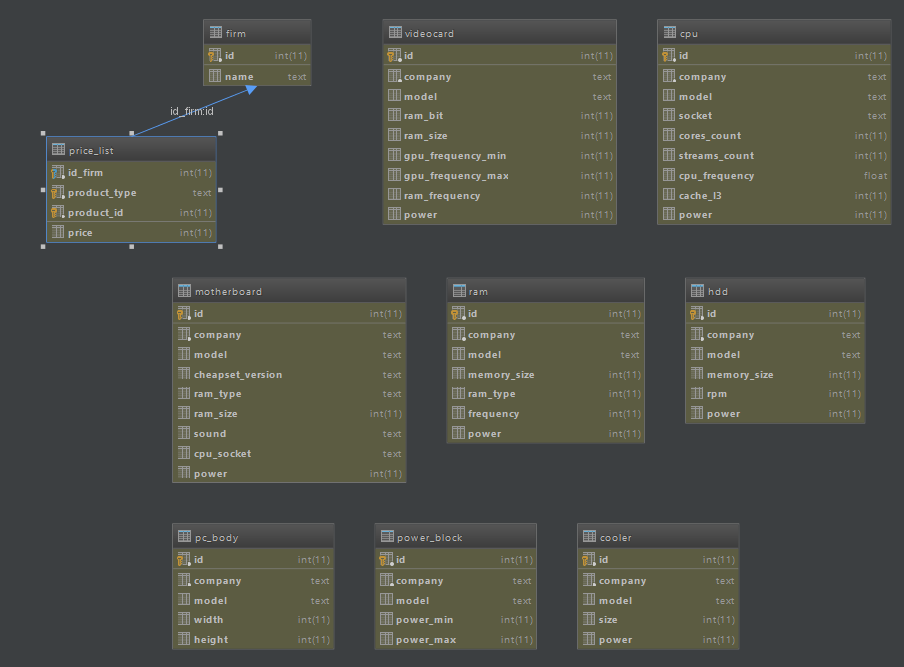Answer the question
In order to leave comments, you need to log in
How to properly organize the database structure for price lists?
Hello! They gave me a task at the university on databases. 

The organization of structure of a DB interests.
So far, I'm guessing 2 options:
We make separate tables for PC components and store only the characteristics there.

Answer the question
In order to leave comments, you need to log in
Get used to the fact that in the IRL there is no correct one - there are those who solve the problem, and those that produce crutches
Yours is closer to the second
Company:
- name
Product:
- name
- type (sdrom, CPU, frame, ...) can be made a static list, you can make FC on a separate table
- .... other characteristics common to all Commodity Price
:
- company = FC (Company)
- price
Individual characteristics for each product are done according to https://en.wikipedia.org/wiki/Entity%E2%80 %93attri...
The biggest problem is product matching.
Different companies use different names.
Only humans can compare.
How will the data be collected?
If they are loaded automatically, then you need to store data on the comparison of identical products somewhere else.
If they are hammered in manually, then everything is easier - you can immediately score in the same way.
For such things, I would not use tables - "video cards", "memory", etc.
It will be difficult to expand.
I in schemaless DBMS would make. For example, in MongoDB.
Didn't find what you were looking for?
Ask your questionAsk a Question
731 491 924 answers to any question